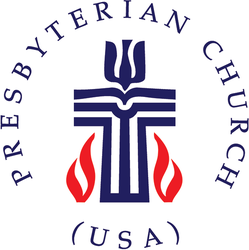A task force working on the first revision to the Presbyterian Church (U.S.A.)’s Rules of Discipline has completed its first draft and is seeking comments on it from throughout the church. The six-person group will receive feedback until September 15, 2018, when it will go to work on a second draft.
An introduction to the revised Rules of Discipline, the proposed text of the rules, and a link to the online feedback form is here. Spanish and Korean translations will be available soon.
The final version of the new Rules of Discipline will be presented to the 224th General Assembly (2020). In recent years, General Assemblies have approved revisions to the other two sections of the Book of Order: the Form of Government (which included creating The Foundations of Presbyterian Polity) and the Directory for Worship.
“The intent of the revisions is to make the Rules of Discipline easier to understand and use by everyone in the church, not just attorneys,” says Flor Vélez-Díaz, manager of judicial process and social witness in the Office of the General Assembly.
“The bulk of the proposed changes to the Rules of Discipline are the task force’s attempts to simplify the document’s wording and organize it into processes that flow more smoothly and clearly, including the addition of new wording from various authoritative interpretations that are often quoted by judicial commissions in their rulings,” the task force writes in its introduction to the first draft.
The newly proposed Rules of Discipline are divided into three sections, Vélez-Díaz explains: a preamble and introduction and sections on Remediation (formerly “remedial”) cases and on Restoration (formerly “disciplinary”) cases.
The change in terminology from “disciplinary” to “restoration” is designed, she adds, “to eliminate confusion because all cases are disciplinary in nature.” The judicial process and procedure for both the Remediation and Restoration sections of the proposed rules are “self-contained from start to finish,” Vélez-Díaz says, “so people don’t have to flip back and forth between sections of the Rules of Discipline the way they have to now.”
One key new provision in the proposal is the removal of any statute of limitations for charges to be filed in restorative processes. Currently only charges related to sexual misconduct/abuse have no statute of limitations. A one-year time limit has been set for investigating committees to do their work.
Another key provision changes the standard for a finding of guilt in restorative processes from “convinced beyond a reasonable doubt” to “morally convinced.”
Also, in remediation processes witnesses must now have firsthand knowledge—“hearsay evidence” is not allowed. In restorative processes, on the other hand, “hearsay evidence” is specifically authorized, and rationale is provided. Hearsay evidence is not directly addressed in the current Rules of Discipline, and is therefore not barred in either remedial or disciplinary processes.
Several changes in the proposed new Rules of Discipline relate to permanent judicial commissions (PJCs), including provisions:
- to ensure that PJCs have enough eligible members to adequately and fairly function, including allowing former members to be utilized for required review and administrative leave evaluation processes;
- to establish a minimum quorum of five members;
- to divide PJCs into three classes as equal in number as possible, with vacancies, when filled, being appointments to specific classes in which the vacancy exists (a current practice in some, but not all, councils); and
- to reduce the years of ineligibility before reelection to a PJC from four to two years.
Members of the Rules of Discipline Task Force are the Reverend Paige McRight (chair), Synod of South Atlantic; Ruling Elder Therese Howell, Synod of Living Waters; the Reverend Barbara Bundick, Synod of Lincoln Trails; Ruling Elder Donna Wells, Synod of the Mid-Atlantic, the Reverend Greg Goodwiller, Synod of Living Waters; and Ruling Elder Doska Ross, Synod of Southern California and Hawaii. The Reverend Dan Saperstein, Synod of the Covenant, sits with the task force as representative from the Advisory Committee on the Constitution, with voice but not vote.

